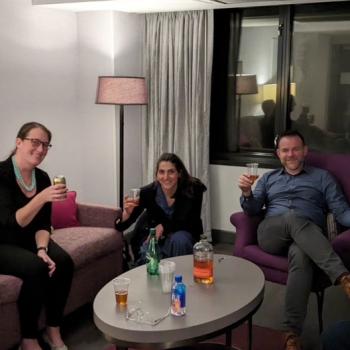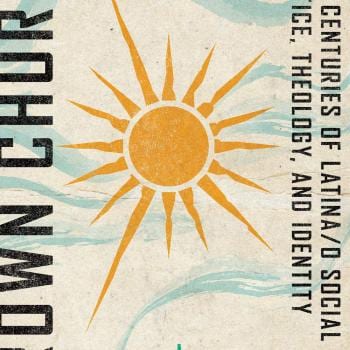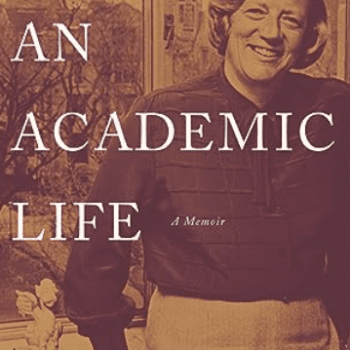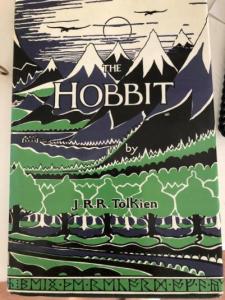 It is difficult to achieve a full-time faculty appointment in History. A 2017 article in the Chronicle of Higher Education ran with the straightforward title: History Jobs Flat: Teaching jobs for historians are down, but data suggest their opportunities outside the professoriate are on the rise. 1145 history doctorates were awarded in 2015-2016 for the 571 full-time job positions sent to the American Historical Association.
It is difficult to achieve a full-time faculty appointment in History. A 2017 article in the Chronicle of Higher Education ran with the straightforward title: History Jobs Flat: Teaching jobs for historians are down, but data suggest their opportunities outside the professoriate are on the rise. 1145 history doctorates were awarded in 2015-2016 for the 571 full-time job positions sent to the American Historical Association.
Sobering.
Of course, the article reminds, while chances of getting a university job are poor, there are lots of other things you can do with a PhD in History . This is true, but often not very satisfying for newly-minted PhDs who really want to be in academia. The article sums up, “the data point to continuing challenges for recent Ph.D.s seeking academic appointments, with dozens of applicants competing for every entry-level job and unpredictable fluctuations in field-specific openings from year to year.”
Getting a PhD is difficult. Getting a full-time job after the PhD is significantly more difficult.
I confess, as the graduate director of a PhD-producing history department, articles like this one terrify me. It is hard not to feel personally responsible f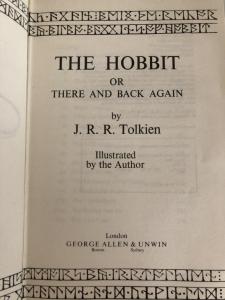 or each student under my care. I want them to get jobs. And not just for the sake of our program statistics–but because we care about them as people; we believe in them as the future of our profession; and we have invested, heavily, in each one. As I wrote in my last post, my job is not only to help students complete their doctorate, but also to help them get a job. There and Back Again.
or each student under my care. I want them to get jobs. And not just for the sake of our program statistics–but because we care about them as people; we believe in them as the future of our profession; and we have invested, heavily, in each one. As I wrote in my last post, my job is not only to help students complete their doctorate, but also to help them get a job. There and Back Again.
Which made this year so fabulously wonderful. All six of our doctoral graduates, 2016-2018, have full-time faculty appointments. Our students beat the odds, achieving 100% placement for our program.
On May 10, shortly before spring graduation, I got to spent some time talking with two of our successful students:Elise Leal and Lynneth Miller. I have posted our entire interview here and below, which begins with me (Beth Allison Barr) simply asking Lynneth and Elise to talk about their preparation for the job market and reflect on their job market success. Elise worked with Tommy Kidd, earning a PhD in American History (specialization History of Childhood, Early America, and American Religious History). She just began as an Assistant Professor at Whitworth University in Spokane, WA. Lynneth Miller worked with me, earning a PhD in European History (specializing in Women and Religion, Medieval and Early Modern Europe, and British History), and she likewise just began as an Assistant Professor at Anderson University in Anderson, South Carolina.
While there are no magic formulas for getting full-time faculty appointments, I think we can learn from these two remarkable and successful scholars. Indeed, if I could sum up the most important gleanings from our conversation:
(1) it takes a village to get a job. The job market shouldn’t be faced by academic loners. You need a community–friends and colleagues for emotional support, for reading and commenting on job applications, for bouncing off ideas, for multiple faculty perspectives, and for simple companionship.
(2) looking for a job is a job in of itself. You will get tired listening to all the work that Lynneth and Elise poured into their job market experience. Yet, at the same time, it worked for them. They caught the eye of committees and ended up with multiple interviews and job offers. Hard work can pay off, especially when that work is directed in the most fruitful ways (like creating a five-year plan and crafting a professional identity).
(3) preparing for the job market requires significant planning. It isn’t something you do your final year while icing the dissertation. It is something you start thinking about and working toward from (ideally) year one.
Facing the job market is difficult and scary. The odds are usually not in your favor. But there are some tangible things you can begin doing now wherever you are in your graduate career to help you be better prepared. I think Lynneth and Elise’s experience will help you and hopefully encourage you. Good luck!
Surviving the Job Market: An Interview with History PhDs Elise Leal and Lynneth J. Miller





